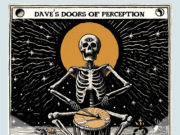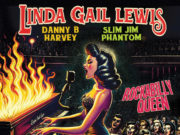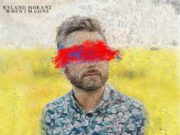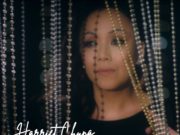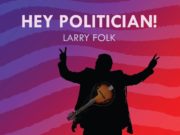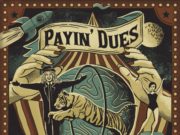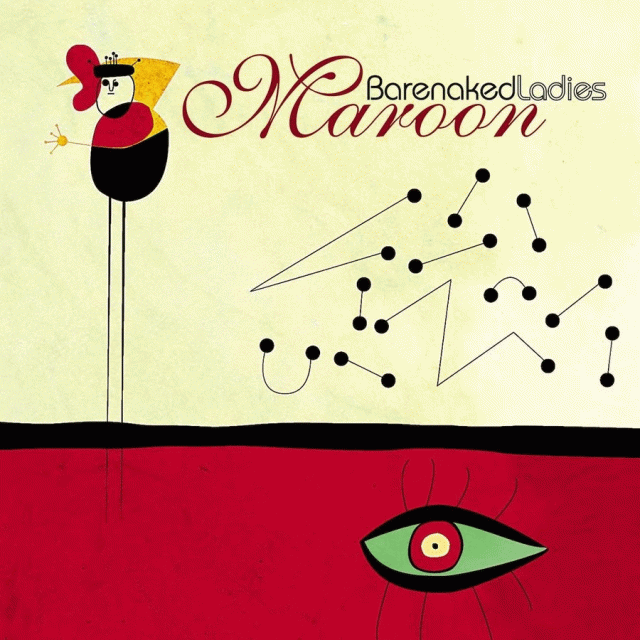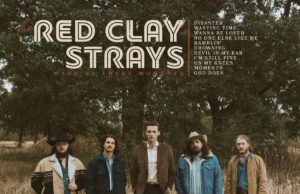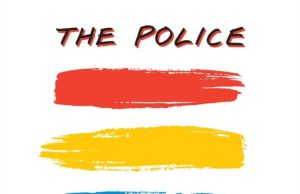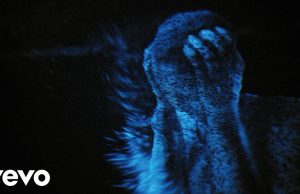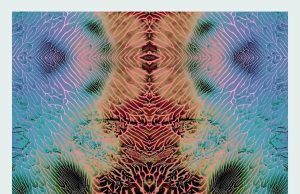Two decades ago, new albums from Barenaked Ladies, Coldplay, Tom Tom Club and others were spinning away in my portable CD player. Here’s what I had to say about them back then (with some minor editing):
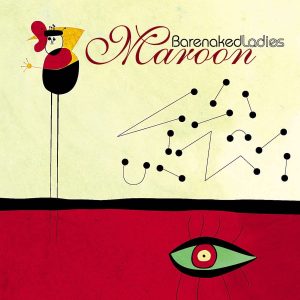 Barenaked Ladies
Barenaked Ladies
Maroon
I’m tired of apologizing for Barenaked Ladies. No fooling — it seems like every time I talk music with an American, I hear the same lame-o digs. “So, are Barenaked Ladies your national band?” is a typical witticism. Or then there’s the ever-sarcastic: “Hey, thanks sooo much for giving us Barenaked Ladies.”
Well, right after I thank them for Xina, Britney and ‘N Sync, I politely add that the Yanks have only themselves to blame. “Hey,” I explain, “we were all pretty much done with ’em after their second CD Maybe You Should Drive. Personally, I don’t know anybody who bought Born on a Pirate Ship. They were on their way down when you all decided to buy four million copies of Stunt and make them pop stars. Besides, what’s the big deal? A few years from now they’ll be gone.” Not that I wish the boys ill or anything, but the sad truth is that U.S. pop stardom is a double-edged sword. Just ask Brad Roberts and Crash Test Dummies how thin the line is between overnight sensation and one-hit wonder. If you’re an idiosyncratic act like the Dummies or BNL, the same people who loved your fresh, innovative sound last year will loathe it this year. The only thing they’ll dislike more is you trying to change it. No matter what you do, it’s a gamble — especially if you try to grow up.
That’s the gamble Barenaked Ladies take on their fifth studio album Maroon. Recorded in Los Angeles this spring and summer under the guidance of producer-to-the-stars Don Was (Bonnie Raitt, Rolling Stones, Iggy Pop and, more to the point in terms of BNL, Brian Wilson), this 13-song affair is the quintet’s most soulful, poignant and sublime album so far, a work of maturity, growth, desire and ambition. In other words, it’s kind of a bummer.
Musically, the songs remain the same — track after track of bouncy, jangling pop, loaded with hummable hooks and toe-tapping tempi and broken up with sweet, folk-tinged ballads to show the boys’ sensitive side. What’s different — noticeably — are the lyrics. On Maroon, Steven Page and Ed Robertson jettison their grinning silly-boy wit for thoughtful introspection. Gone for good, it seems, are the pop culture references and goofball revelry of Be My Yoko Ono or If I Had $1000000. Here they’ve been replaced by reflective musings on the fragility of love and life and how easy it is to end up marooned — by romantic trauma and betrayal (The Humour of the Situation), by war (Helicopters) and by random tragedy and death (Tonight is the Night I Fell Asleep at the Wheel). Not exactly top of the pops. Sonically, the Ladies are also flirting with new ideas. Give credit to Was, who has a knack for adding plenty of ear candy — textures, effects, sonic depth and breadth, a myriad of timbres and shadings — to tracks without obscuring their basic melodies.
Trouble is, sometimes these tracks don’t have much of a foundation to begin with. Despite all the pop gloss and bounce, there really aren’t any ear-catching singles. Even after several listenings, Maroon never really sticks in your head. And while you have to give BNL full points for effort with their more mature lyrics, the results are mixed. For every moving, thoughtful line (“I felt a chill because I was still wearing the emperor’s new clothes”), there’s an embarrassing clunker (“You can’t live your life in the baby seat; you’ve got to stand on your own”). But whether or not this new grown-up approach pays off artistically, the real measure will be if it pays off financially in the U.S. Maroon will be the album that either elevates them to the rank of serious songwriters or consigns them to the one-hit-wonder bargain-bin. Either way, I won’t have to apologize for them much longer.
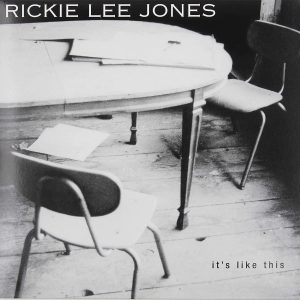 Rickie Lee Jones
Rickie Lee Jones
It’s Like This
Like Bryan Ferry, Rickie Lee Jones has never met a cover tune she didn’t like. Throughout her long career, Ms. Chuck E.’s in Love has revamped standards such as My Funny Valentine and rockers like Rebel, Rebel. On this all-covers album she splits the diff, affixing her trademark light jazz-funk touch and unmistakable voice — part Bjork, part Billie Holiday, part waif with a plugged nose — to the work of Steely Dan (Show Biz Kids), Traffic (Low Spark of High Heeled Boys) and The Beatles (For No One), before segueing into mellower, torchy classics like On the Street Where You Live, I Can’t Get Started and Someone to Watch Over Me. With every smooth, soulful selection, she proves you don’t have to write songs to make ’em your own. When it comes to reinterpreting the work of others, Jones has it covered.
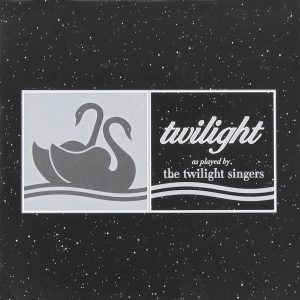 Twilight Singers
Twilight Singers
Twilight As Played By The Twilight Singers
Another myth shattered. For years, I have assumed that alt-rock soul-man Greg Dulli of The Afghan Whigs spent all his off-time listening to Prince albums, given his insatiable desire to reinvent his chubby-assed self as a svelte soul stirrer. Now it seems he has introduced the occasional Portishead disc into the rotation. On this long-awaited solo album — which was actually recorded before the Whigs’ last disc, 1965 — Dulli updates the soul’n’B backdrop of his old band with the clattering, syncopated beats, looped samples and moody, sinister funk of British trip-hop. For the most part, he pulls it off impressively — the heartbreaking ballad King Only and the funky jive of Annie Mae, for instance, suggest Prince jamming with Massive Attack. Naturally, it’s a pretty downbeat affair, and there are a few filler tracks that really seem more like experimental vignettes than actual songs. But all in all, Twilight proves there’s a lot more to Dulli than you thought.
 Coldplay
Coldplay
Parachutes
Depending on which typically hyperbolic British music paper you read, this Oxford mope-pop quartet are this year’s Radiohead, this year’s Travis, this year’s Nick Drake, this year’s Smiths or this year’s Jeff Buckley. What they really are is this year’s most unfairly overhyped young band. Truth is, Coldplay’s romantically strummy guitar-pop and sweetly-sour falsetto lamentations of hope and sadness do remind us of most of the artists above. But while lush, cloudy tunes like Shiver indeed produce the occasional goosebump, Parachutes is nowhere near as transcendent or transfixing as any of those artists’ finest work. It’s a damn fine debut, but make no mistake — what they do in years to come will likely prove to be more important than what they’ve done this year.
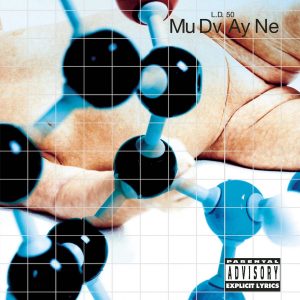 Mudvayne
Mudvayne
L.D. 50
Here’s how fast the music biz is moving: A year ago, clown-metal brutes Slipknot were unknown; now, they’ve got imitators. Peoria, Ill., quartet Mudvayne have the bizarre pseudonyms — Kud, Gurrg, sPaG and the comparatively dull Ryknow. They have the getups — the bassist has a devil outfit and someone else wears a red hockey mask. More to the point, their major-label debut L.D. 50 (issued on Slipknot’s imprint) pitches the same sort of aggro-rock fit, with plenty of psychotically flailing drums, skull-drilling guitar riffs, blowtorch vocals and cryptically savage spleen-vent rants like Death Blooms, Severed and Prod. What they don’t have yet is Slipknot’s songwriting ability — after half an hour of this relentless fury, you found yourself bludgeoned to sleep. It’s a fine likeness boys, but the original is better.
 Shuvel
Shuvel
Set It Off
With rap-metal bands now approaching critical mass on the music scene, a group has to have a gimmick, a hook, something to stand out from the crowd. This Wichita crew’s strategy is two — count ’em two — lead vocalists. And fair enough, it does set Shuvel apart somewhat, with Isaac Ayala and Jeff Hollinger trading and doubling up lines like a heavy metal Beastie Boys. Pity that’s really the most distinctive thing about this otherwise unremarkable set of standard Korn-fed moodiness and Rage-aholic slam-jam. I have no doubt these guys will do better next time, but right now, despite having two vocalists, Shuvel still seem to be finding their own voice.
 Dee Snider
Dee Snider
Never Let The Bastards Wear You Down
If the title alone isn’t obvious enough, the album makes it clear — Dee Snider is not a guy who knows when to quit. Back in 1989, the Twisted Sister frontman collaborated with British guitar ace Bernie Torme on an album that was shelved. Flash-forward 10 years and what is Mr. Sister doing? Why, he’s re-recording the same damn tracks, which suggests he hasn’t written a song in the last decade, or hasn’t written any as good as this. Which is really saying something, since most of these tracks are garden-variety hair-metal. When Dee lets that hair down — he rocks up The Wanderer and pays tribute to Lemmy with the Motörhead homage Hard Core — the disc briefly rises above the banal. Then comes the inevitable cheeseball power ballad Cry You a Rainbow to kill the buzz. Dude shoulda quit while he was ahead.
 Paw
Paw
Home Is A Strange Place
Back during the post-Nirvana feeding frenzy of the early ’90s, anything that smelled grungey got a record deal — including this Lawrence, Kan., outfit, who put out a pair of tolerable (if derivative) discs before being dropped like a hot potato after Kurt killed himself and the genre. Five years later, singer Mark Hennessy and guitarist Grant Fitch return with this third offering — and they come out swinging. Home is a Strange Place packs a more metallic wallop than previous efforts, with Fitch spinning screeching cyclones of heavy metal guitar to accompany Hennessy’s thunderous Chris Cornell vocals. It’s far from perfect — these bruised tracks are more mood than substance, and the rootsy acoustic guitars that break up the action don’t quite fit — but for a comeback, this slab of American gothic is a sign of life after grunge.
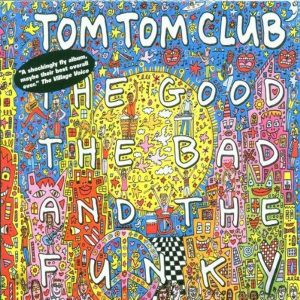 Tom Tom Club
Tom Tom Club
The Good The Bad & The Funky
White folks have no business being this funky. Though you have to make an exception for 50-year-old Rhode Islanders Chris Franz and Tina Weymouth, the hubby-and-wife rhythm section of Talking Heads who have decided to reconvene Tom Tom Club, their old side project. The Good the Bad and the Funky is their first album in nearly a decade, but its lighthearted lyrics and lightweight funk grooves will be instantly familiar to anyone who remembers Wordy Rappinghood or Genius of Love (or, for that matter, anyone who has ever heard a Luscious Jackson record). To go with the something old, there’s something new — the dancehall and reggae-spiced Caribbean vibe of Time to Bounce, Soul Fire (a Lee Perry track) and She’s Dangerous, featuring vocals by Toots Hibbert. But nothing is quite as unexpected as their outta-left-field cover of Donna Summer’s Love to Love You Baby. That one pretty much sums up the title right there.
https://youtu.be/3XJtjHkCxMk
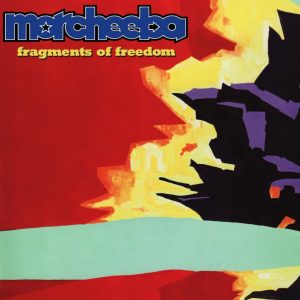 Morcheeba
Morcheeba
Fragments of Freedom
Morcheeba? Try MorProzac. When this U.K. trio dropped their debut Who Can You Trust? in 1996, they were a full-fledged trip-hop troupe with deep-dish beats and purring vocals from sultry chanteuse Sky Edwards. Since then, they’ve been drifting toward a poppier sound, gradually shucking their slo-mo sinisterism for uptempo grooves and positive vibes. In that respect, their third CD Fragments of Freedom is a logical progression, with Edwards and instrumentalist brothers Paul and Ross Godfrey offering up everything from neck-snapping soul-funk (Love is Rare) to Eurythmics-style electropop (Rome Wasn’t Built In a Day), even tossing in the odd lilting Caribbean melody or country-guitar lick. Now and then, like on the title track, they return to their trip-hoppy ways, but you get the sense their heart isn’t in it anymore. “I’ve had enough of all this tension,” breathes Sky at one point. No kidding.
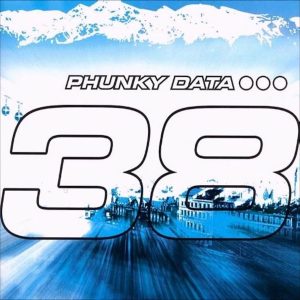 Phunky Data
Phunky Data
38
As it is, I have trouble telling one French disco artist from another. This sophomore disc from duo Phunky Data isn’t making things easier. Bad enough that their name is a rearrangement of Daft Punk; on 38, their music is as well. While last year’s debut Fashion or Not? displayed some flair and stylistic originality, 38‘s resemblance to DP’s Da Funk is a little close for comfort. The four-on-the-floor booty-whomp grooves, the two-bar passages strung together like so many disco beads, a flanger so overused it deserves songwriting credit, it’s all here. Not that they don’t do it superbly — for a knockoff, 38 is a perfect fit. Still, you have to wonder if Phunky Data aren’t just Daft Punk’s latest deft prank.
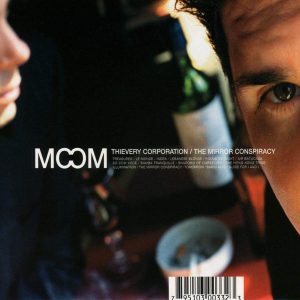 Thievery Corporation
Thievery Corporation
The Mirror Conspiracy
D.C. record label and club owners Eric Hilton and Rob Garza claim not to be musicians. They coulda fooled me. In their guise as deep-house duo Thievery Corporation, Hilton and Garza sure act like musicians. And damn fine ones. Their first CD, Sounds From the Thievery Hi-Fi, blazed a trail through the worlds of ambient Jamaican dub and shimmering, hypnotic trip-hop, taking them to the cutting-edge of the American electronica and acid-jazz scenes, where they’ve reigned benevolently for the past few years. Sophomore disc Mirror Conspiracy takes up where Hi-Fi left off. As cool as the underside of the pillow, it pushes the loungetronic envelope by adding sitars, vocals and other Eastern influences to the magnificently intoxicating minimalism of tracks such as Indra and Lebanese Blonde. Think what they could do if they were musicians.
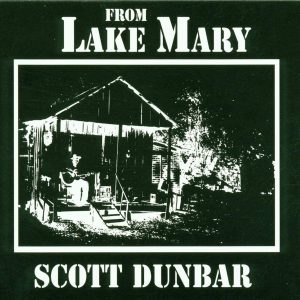 Scott Dunbar
Scott Dunbar
From Lake Mary
You’d never guess this album is 30 years old. If anything, it sounds like it couldn’t be a day under 70 — which is about how old Mississippi bluesman Scott Dunbar was when he recorded it. The singer-guitarist, who died in 1994 at age 90, was the illiterate son of a former slave and never travelled more than 100 miles from his home. This reissued CD — his only recording — gives his acoustic folk-blues the exposure it deserves. Jaggedly hand-picking a barely tuned guitar while he hollers and mumbles half-remembered lyrics from half a lifetime ago, Scott rambles his way through standards like Little Liza Jane, Vicksburg Blues, Easy Rider and Goodnight Irene with all the innocent joy of a back-porch jam. He may hit a few sour notes, but he never hits a wrong one. So ragged and downhome it makes Robert Johnson seem as slick as Neil Diamond, From Lake Mary is the natch’l blues in all their unvarnished, unsophisticated beauty. It may be 30 years old and sound 70, but really it’s timeless.
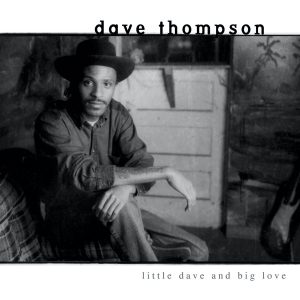 Dave Thompson
Dave Thompson
Little Dave & Big Love
Dave Thompson is the first blues guitarist I’ve heard of who sprays WD-40 on the neck of his Strat to play faster. But if the fretboard fireworks of his strong debut disc are anything to go by, he might just start a trend. Trained in the rough-and-tumble juke joints of Mississippi but obviously enamoured with the Texas sounds of Stevie Ray Vaughan, Thompson has a searing, funky style that combines both his musical influences into an electrifying strain of contemporary blues-rock. His playing, which features ice-pick solos and slick, precise chording, is the star of the show; next to that, his soft, soulful vocals seem kinda anemic. Or at least they used to — this CD is five years old, but only getting wide release now. Which prompts two questions: 1) Where is he now? 2) Where can I buy stock in WD-40?
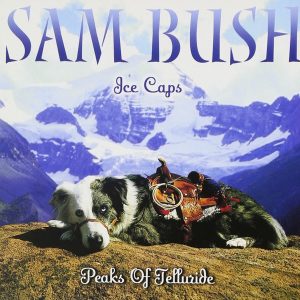 Sam Bush
Sam Bush
Ice Caps: Peaks Of Telluride
I’ve never been to the Telluride Bluegrass Festival. Until we heard Ice Caps, I never knew what I was missing. You can sum it up in two words: Sam Bush. The mandolin god and founder of New Grass Revival has played at 26 of 27 Telluride fests. If you think that would get monotonous, think again — Ice Caps, which collects the high points of his ’90s shows, eloquently explains why he gets invited back. Aside from being one of the most awesome mandolin pluckers on the planet, Bush is also a well-rounded stylist who knows bluegrass doesn’t begin and end with Bill Monroe. So while Ice Caps has some tracks you’d expect on a folk disc (like elegant covers of Monroe’s Big Mon and Bob Dylan’s Girl From the North Country), it also has stuff you’d never expect (like a rockin’ version of John Hiatt’s Memphis in the Meantime and a caffeinated cover of Little Feat’s Sailin’ Shoes). Eclectic, electrifying and exceptionally entertaining, Ice Caps is the best advertising the Telluride fest could buy. I might have to rethink next year’s vacation.
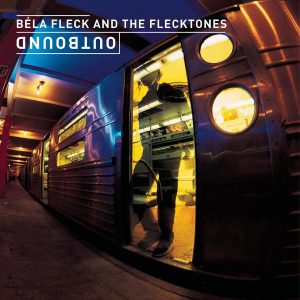 Bela Fleck
Bela Fleck
Outbound
Bela Fleck is not your father’s banjo player — unless you call Frank Zappa dad. From his years with Sam Bush in the progressive bluegrass outfit New Grass Revival to his myriad, envelope-pushing solo albums, this prolific composer and musician named for Bela Bartok has been taking the banjo to new heights. That journey continues with the aptly named Outbound, which finds Fleck applying his free-ranging, five-string firepower to contemporary classics (Aaron Copland’s Hoe Down), interstellar ragga-rock (A Moment So Close, a pop song in 27/8 time) and boppy jazz (Earth Jam), along with world music, bluegrass, C&W, prog-rock and pretty much everything else you could name. A crack band and impressive guest list including Yes vocalist Jon Anderson, singer Shawn Colvin and acid-jazz organist John Medeski keep Fleck heading not just onward and outward, but upward.
 Jimi Tenor
Jimi Tenor
Out of Nowhere
Finnish funkateer Jimi Tenor has always been a little, well, out there. On the aptly titled Out of Nowhere, however, the idiosyncratic techno-lounger — who may be the missing link between Gary Numan and George Clinton — doesn’t just go to the edge; he gleefully jumps into the abyss. Forsaking the synthetic shmaltz and clubland kitsch of earlier works like Organism and trading in his sampler for sheet music, Tenor leads a 60-piece orchestra (no, really) through a set of bizarrely wonderful soundtrack-style compositions. Wonderful, that is, of course, if you can imagine Lalo Schifrin and Curtis Mayfield teaming up to score a zombie blaxploitation flick. Tenor doesn’t just imagine it; on Blood on Borscht (a slice of Goblin-style prog metal), Paint the Stars (a Prince-ready soul meltdown) and the title track (a stabbing Bernard Herrmann ode), he brings his twisted vision to glorious, technicolour life. I dare someone to make a movie to go with it.


